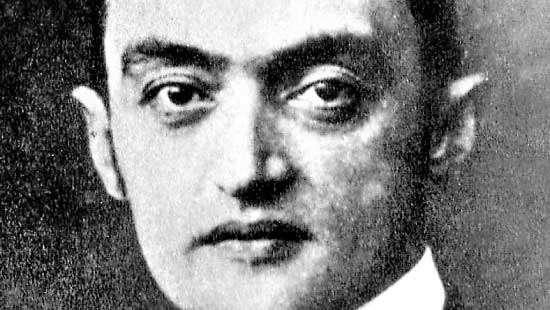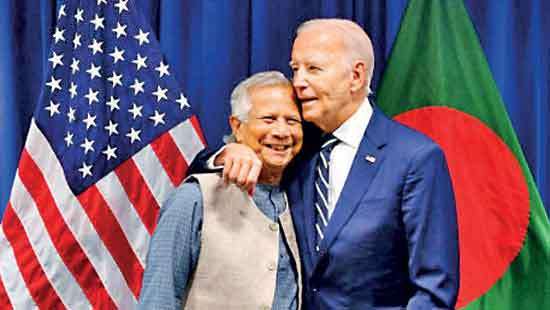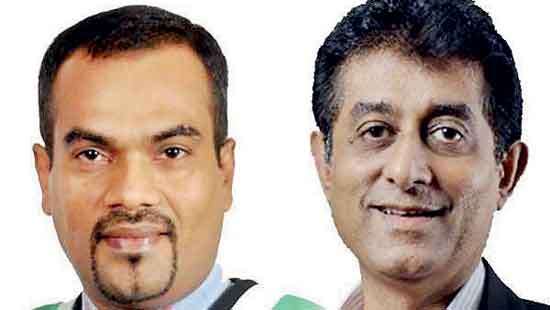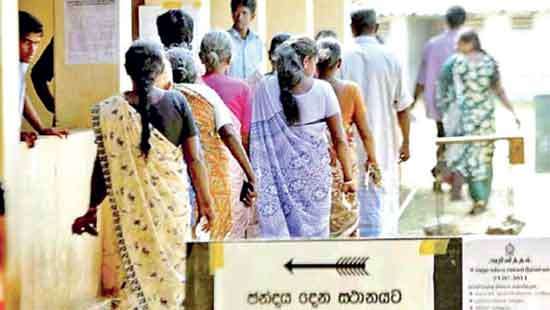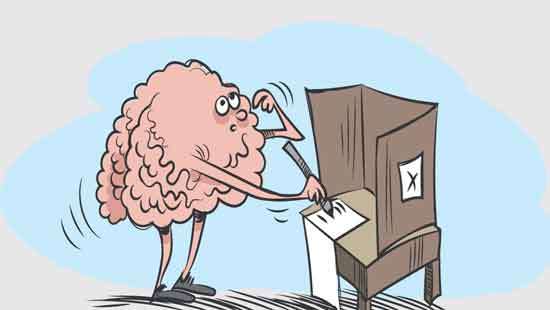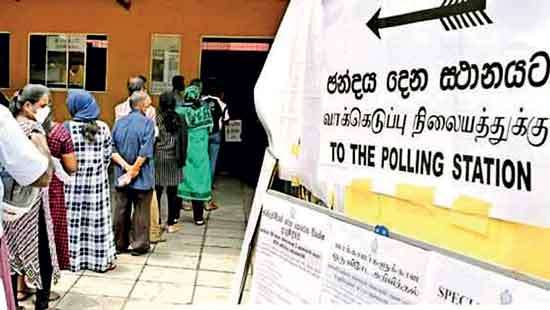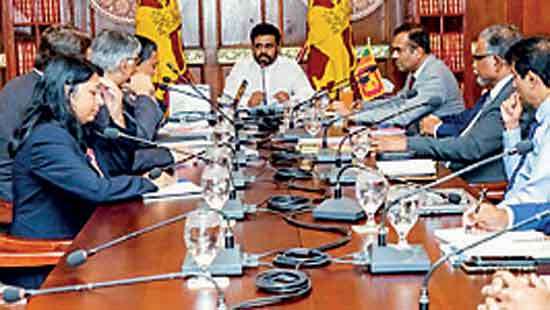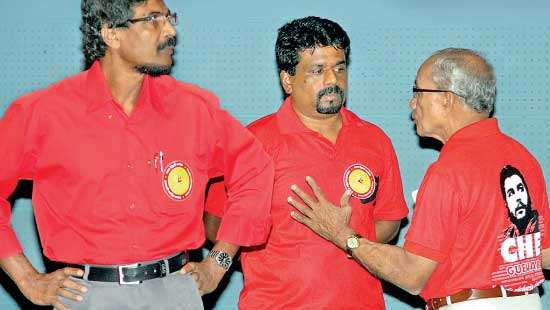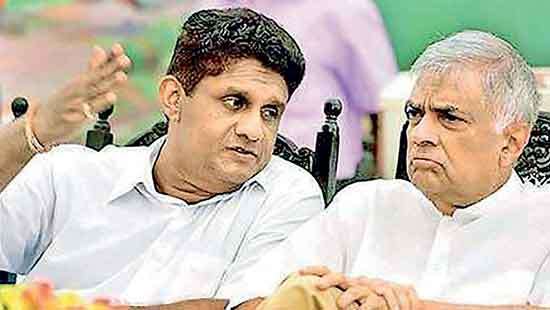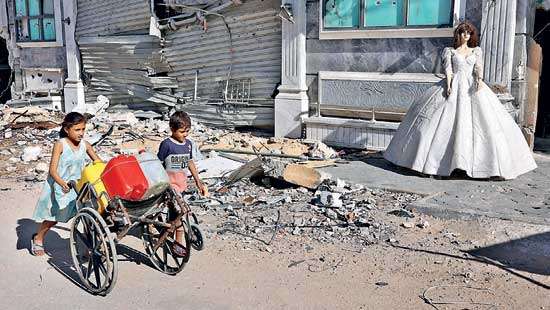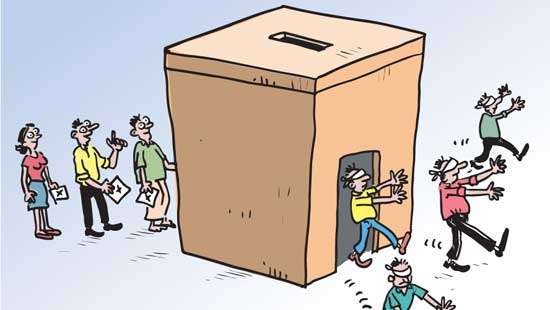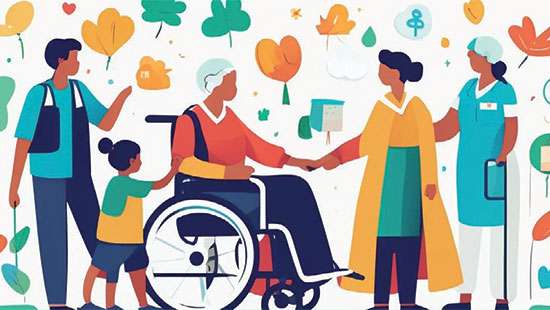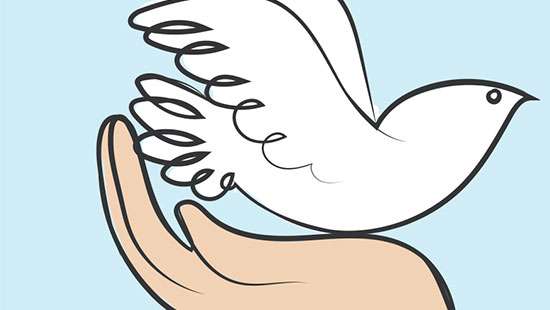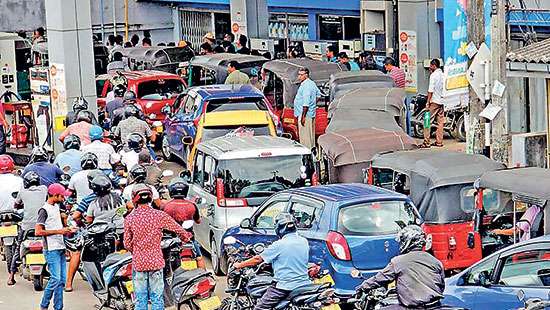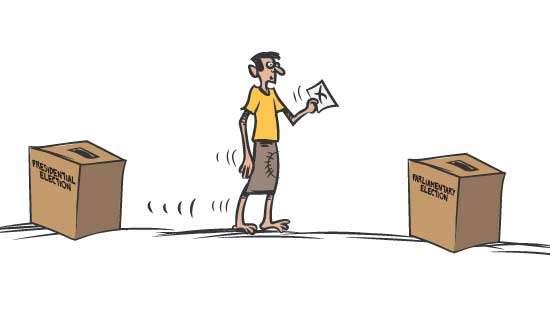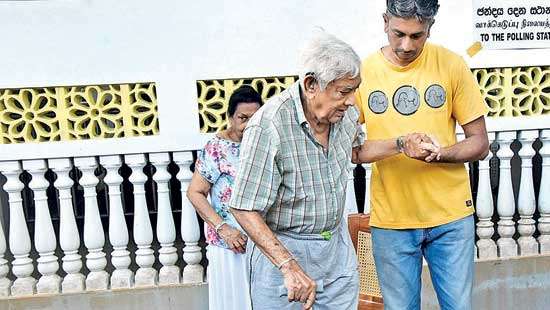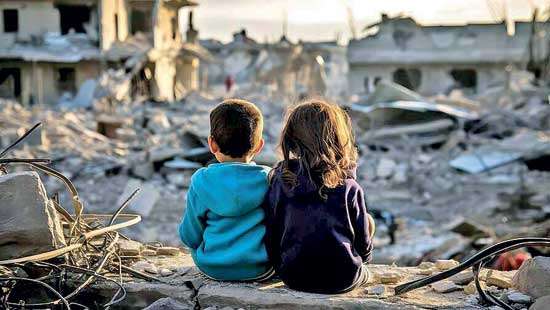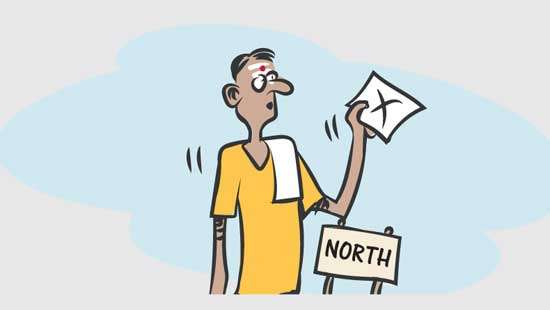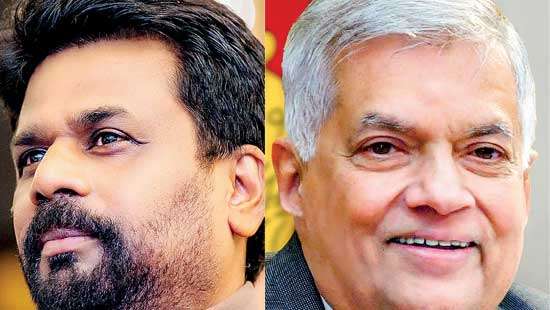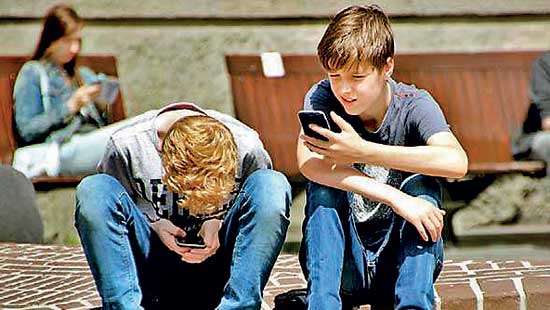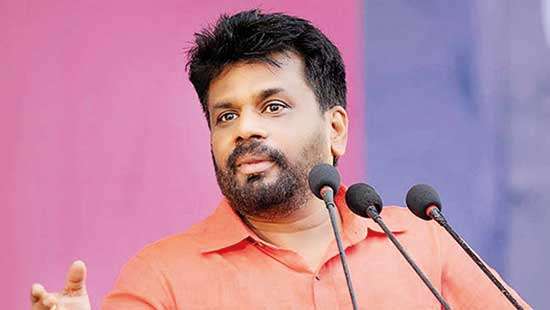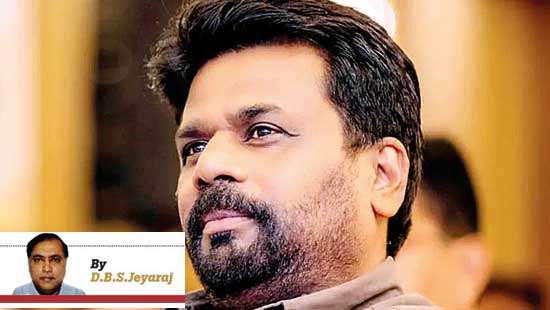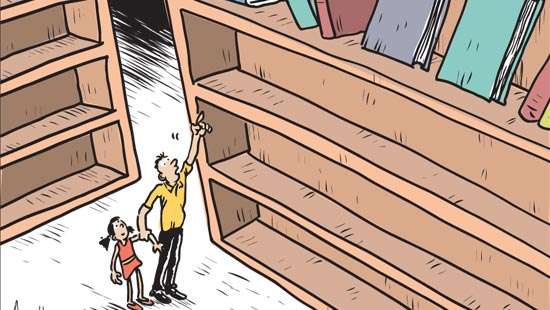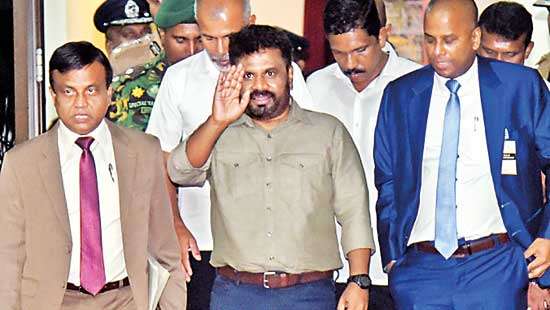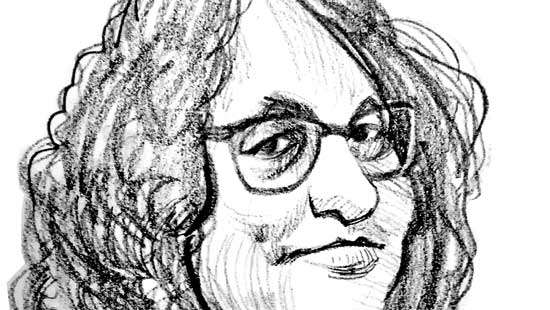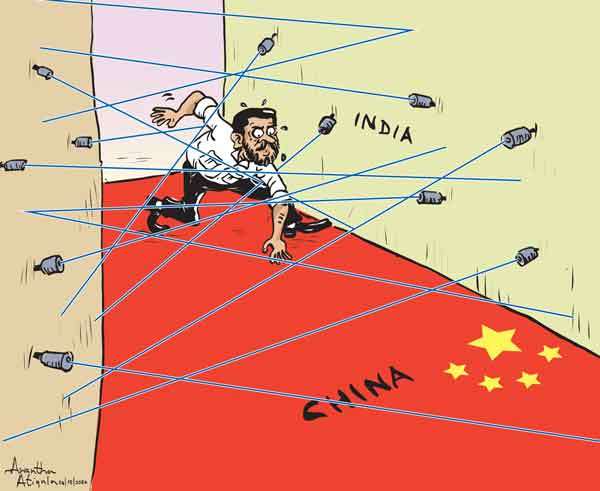Opinion
Creative Destruction of Sri Lankan politics is currently underway
09 Oct 2024
 2
2
In the 1940s, Austrian economist Joseph Schumpeter popularized an idea now a free market economist’s mainstay. The concept, ‘creative destruction’ is a process in which disruptive technologies, products, new methods of production and means of distribution dismantle and replace the established ones, making way for innovation as the driving force of capitalism.
Choosing Leaders Wisely: The Importance of Transparency in Political Candidate Selection
08 Oct 2024
 4
4
As a concerned and patriotic citizen of Sri Lanka, I am writing to share my thoughts regarding the upcoming election and the critical importance of selecting the best possible candidates for our nation’s future.
Government caught between election promises and reality - EDITORIAL
07 Oct 2024
 2
2
During the post presidential period of electioneering, all credible presidential parties and groupings save the faction led by ex-President Wickremesinghe, made promises of renegotiating the International Monetary Fund (IMF) agreement.
Anura Kumara’s Ascendancy Within the JVP and Sri Lanka
05 Oct 2024
 0
0
Sri Lanka’s newly elected ninth Executive President Anura Kumara Dissanayake (AKD) continues to be the focus of this column. In the first part of this article published last week, the early years of Anura’s eventful life were delved into in some detail. In this week’s second part, AKD’s steady rise as a political leader within the Janatha Vimukthi Peramuna (JVP) will be related to some extent.
Seeing the General Election through Presidential Election
05 Oct 2024
 4
4
The UNP leaders alleged that what they called the unfair conditions laid down by the SJB resulted in the breakdown of the talks between the two parties. According to media reports, the SJB has demanded that Ranil Wickremesinghe resigns as the leader of the UNP, the general secretary post of the proposed alliance be awarded to the SJB, the coalition contest under SJB’s symbol, the telephone and those politicians of the Sri Lanka Podujana Peramuna
Lanka’s economy, the Middle East and the IMF agreement
05 Oct 2024
 0
0
Our country is struggling to get out of a situation of bankruptcy. President Dissanayake is even today in discussion with a high-level delegation of the International Monetary Fund (IMF). According to media reports Dissanayake has doubled down on his acceptance of the agreement. He has however informed the delegation of the need to help the poorer sections of the community by lowering particular taxes.
The new president’s opportunity to reshape social protection
03 Oct 2024
 3
3
On 16 August 2024, Sri Lanka launched a National Social Protection Policy (NSPP). This was a first in the country, which had previously not had a policy but only a host of different programmes (such as free universal health coverage, free education at primary and secondary levels, Samurdhi, and more recently, Aswesuma).
Non-violence: the mightiest weapon of social justice
03 Oct 2024
 1
1
The United Nations yesterday (2) observed the International Day of Non-Violence. October 2 was especially designated as the Day of Non-Violence as it is the birthday of Mahatma Gandhi, who was the leader of the Indian independence movement and pioneer of the philosophy and strategy of non-violence.
Sri Lanka’s People Need a New Debt Deal
03 Oct 2024
 6
6
Ranil Wickremesinghe, Sri Lanka’s President, recently lost his re-election bid after voters overwhelmingly rejected the debt-restructuring deals he negotiated with the International Monetary Fund and other creditors. Instead, Sri Lankans elected Anura Kumara Dissanayake, leader of the left-wing National People’s Power (NPP) alliance and a vocal critic of IMF-imposed austerity measures, who has vowed to renegotiate the country’s agreement with the
The upcoming General Elections and pitfalls ahead
02 Oct 2024
 2
2
T he presidential election which had us all agog, is now over. President Dissanayake -the young leader of the NPP, who campaigned on a platform of anti-corruption and against waste, has been voted into power. The people who for the past five years have suffered all manner of deprivation look forward to a new era where their burdens will be eased.
Understanding the message given by Northerners - EDITORIAL
01 Oct 2024
 4
4
During their first media conference following the Presidential election, the Ilankai Thamil Arasu Katchi (ITAK) which has proven again that they are the largest Tamil political party in the North and the East had announced that they were considering to field their candidates
Political Maturity? Ranil’s Honourable Exit and NPP’s Reciprocal Approach
30 Sep 2024
 19
19
Chathuranga Abeysinghe, Executive Committee member of the National People’s Power, appeared on a TV talk show last Tuesday, where he expressed appreciation for former President Ranil Wickremesinghe’s efforts in leaving the Treasury in a stable financial condition.
From three percent to the throne
28 Sep 2024
 0
0
It was strongly argued before the Presidential election that a party like the National People’s Power (NPP) led by Anura Kumara Dissanayake which obtained only 3.16 percent of total votes in the 2019 Presidential election cannot achieve the 50 percent target to win this time.
Post Presidential polls -Winds of change or new broom
28 Sep 2024
 3
3
On 21 September, Lankans elected into office a new President who campaigned on an anti-corruption platform and renegotiating with the IMF. Presently 25 percent of our people are living below the poverty line, where according to UNICEF 1 in 2 children in Lanka are going hungry.
New government, new hopes and new challenges
26 Sep 2024
 2
2
As predicted by political analysts, the September 21 presidential poll concluded up with many firsts. First and foremost, it ushered Anura Kumara Dissanayake alias AKD in to presidency; a politician from outside the traditional, political mainstream.
Is Dr. Amarasuriya the Kamala Harris of Sri Lanka?
26 Sep 2024
 20
20
Sri Lanka now has her third female Prime Minister after a hiatus of 24 years. Twenty years is a long period of time from a political perspective. That was sufficient time to usher in change, to witness more women in the political sphere in decision-making positions and for them to take a lead to make a difference. But women’s representation in politics has been a long struggle. A struggle met with many patriarchal and professional challenges. But

Sri Lanka’s tourist arrivals surpass 2 million in 2024
26 Sep 2024
 20
20

Auction yields slump for third consecutive week
26 Sep 2024
 20
20

Moody’s raises Sri Lanka’s rating
26 Sep 2024
 20
20

ASPI crosses the 15,000 mark for the first time
26 Sep 2024
 20
20

‘Cardinal’ only used to polish the floor: Pastor Jerome
26 Sep 2024
 20
20

Govt. has not yet decided when to assign official vehicles to MPs
26 Sep 2024
 20
20

Sharp increase in financial frauds during festive season: SLCERT
26 Sep 2024
 20
20


